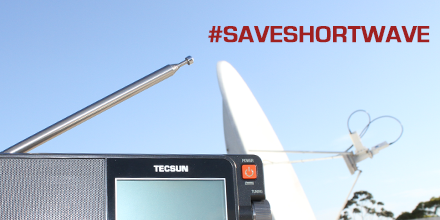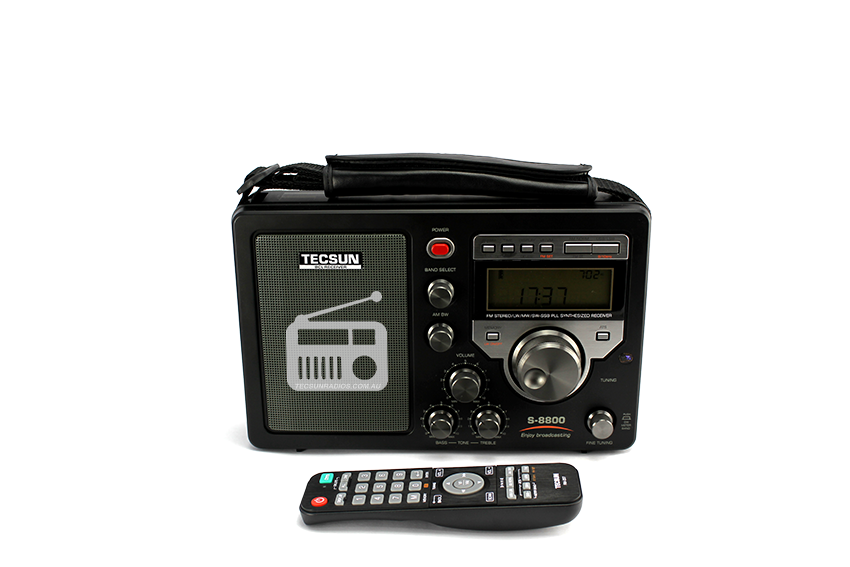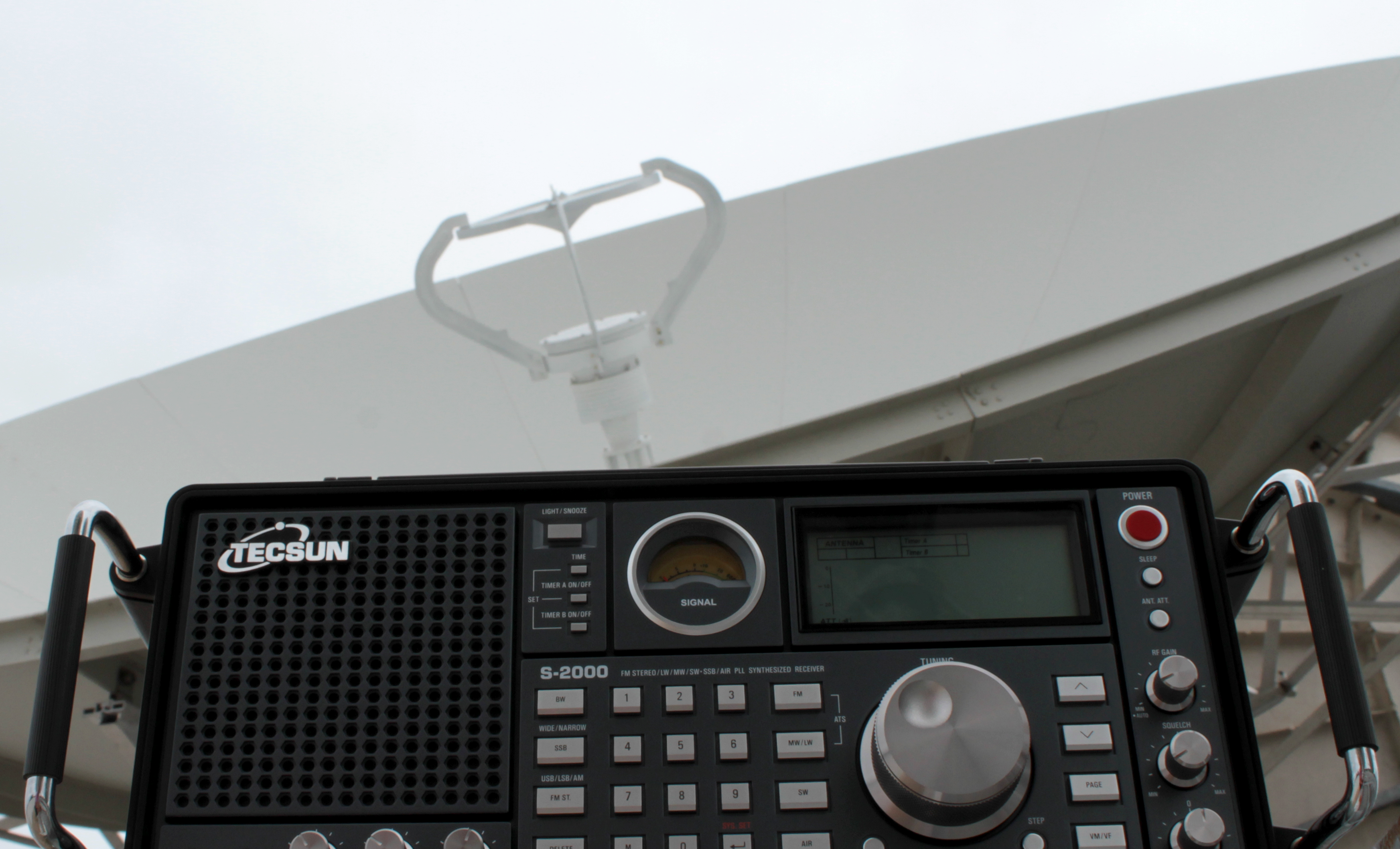Review of the Tecsun S-8800
by Garry Cratt VK2YBX
The S-8800 High Performance AM/FM Radio is the latest radio to be released by Tecsun, and we think it has been worth the wait. The Tecsun S-8800 High Performance AM/FM Radio has been designed to provide maximum performance on the AM (MW) bands, allowing listeners to receive fringe AM radio stations with unmatched audio clarity. Being the authorised distributor for Australia and the Pacific, we obtained a handmade sample for evaluation and gave it to our radio expert Garry Cratt (VK2YBX) for evaluation. Read on for Garry’s review.
General features
Like many other models, the unit is battery operated, but in this case the batteries are 2 x 18650 lithium cells, which are charged via the USB socket on the side of the receiver. This ensures adequate DC power to sustain long periods of listening at good audio level. Users may recall that both the Tecsun BCL-3000 and the Tecsun S2000 use expensive C or D cells, and obviously customer feedback has led to this change to lithium cells.
The receiver even has a built in battery tester, in the form of two LEDs recessed into the battery compartment. If the LED does not illuminate, replace and recharge the offending cell. There is also a battery indicator as part of the front panel LDC display.
The second most obvious new feature of the Tecsun S-8800 is the inclusion of an infrared remote control. No other Tecsun model has this feature which allows the receiver to be controlled without having to touch it. This is an advantage when receiving AM stations , where the receiver has been physically oriented for best reception.
All the Tecsun S-8800’s features can be controlled using the remote control, including power, display (changing between frequency or time), memory (store or recall frequencies), tuning, VF/VM modes, scanning, mode (AM, FM (mono or stereo) USB or LSB, bands (AM, FM or shortwave, 9/10kHz setting for MW, AM bandwidth, and a keypad to allow direct entry of frequencies.
Fortunately, or perhaps part of the good overall design, the remote control operates from regular AAA batteries. Some of the receivers I have tested use special button batteries that are expensive to replace.
AM features
Ever since the demise of the Tecsun BCL-3000, and prior to that the Tecsun BCL-2000, there has been a need for a receiver capable of providing good fringe reception of AM broadcast band signals.
Other desirable features that go hand in hand with good AM sensitivity are frequency stability and those features which affect the tonal quality of sound. The Tecsun S-8800 fills this requirement by having separate volume, bass, treble and bandwidth controls. It also has the advantage of a 120mm speaker rated at two watts output, which provides superior sound, even when compared to the Tecsun PL-880 portable which has been used by many as a benchmark.
The Tecsun S-8800 has provision for the connection of an external AM antenna via the commonly encountered push button “speaker connectors”. This is a high impedance connection, so you can connect your longwire antenna directly.
However, most listeners will appreciate that an external antenna, which includes a matching balun and fed with shielded coaxial cable helps eliminate the effect of interference caused by many household items. The low impedance external BNC antenna connections can also be used for shortwave reception. One great feature that has been included is AM bandwidth selection. The only other model Tecsun receiver with this feature is the Tecsun PL-310ET, and it makes a world of difference. When an AM signal is noisy, being able to adjust the bandwidth from 6kHz down to 3 or even 2.3kHz means the difference between annoying noise and an intelligible signal, even if it does mean some loss in fidelity. This is of no consequence when most of the programming is “talkback”.
Although the frequency range is stated as 520-1620kHz (when the receiver is set to 9kHz spacing), it can be extended by setting the receiver to 10kHz spacing and then it will be possible to tune 520-1710kHz. By using slow tuning steps (1kHz), and station can be tuned.
FM features
Like previous Tecsun models the S-8800 allows the user to select between 64-108MHz, 76-108MHz and 88-108MHz frequency coverage.
There is also provision for connection to an external FM antenna, and many users already know the trick of connection to their household TV antenna to improve reception. Forcing the receiver into the FM mono mode will also improve weak signals.
Shortwave (SW) Features
SSB (single sideband) is used by what shortwave listeners call “utility” services. This can include amateur radio operators, aircraft, marine weather, 4WD clubs, The Flying Doctor (in Australia), as well as being used by mining camps, police etc for regular outback communications.
The Tecsun S-8800 allows independent selection of USB or LSB, and facilitates either 1kHz or 10Hz tuning steps in this mode.
The receiver covers 100-519kHz (LW), 520-1710kHz (AM using 10kHz channel spacing), 1711-29999kHz (SW).
Other features
There are a myriad of other features offered by the Tecsun S-8800 including those found in most models such as clock, timer, snooze and alarms. In total 650 stations can be stored in memory across all bands (there are limits for each band) and recalled in real time or at some time in the future. There are also the usual store, recall and delete memory functions as well as auto sort (handy for removing duplicate frequencies.
The receiver offers frequency “browsing”, similar to the ETM function found on smaller portables like the Tecsun PL-310ET and Tecsun PL-365, as well as semi-automatic storage (the receiver stops when it finds a signal and you have 4 seconds to store it), and ATS (Auto Tuning Storage) where the receiver stores every signal it discovers. It is these operations where the use of the remote control makes the process much easier.
To prevent signal overload, the receiver has “DX/Local” switch.
Like all computer driven receivers, things do sometimes get confused between operator and machine. To remedy this, there is a reset switch hidden under the main tuning knob. Pulling the knob off the shaft reveals this. A small pointed device is required, most uses find a paper clip is suitable.
Initial testing:
Testing so far has centred around fringe AM reception. My test site is 200Km from Sydney and I have found 2UE (954kHz) to be the weakest Sydney station. They transmit 5kW using an omnidirectional antenna.
For the test I decided to compare the Tecsun PL-660, Tecsun PL-880, Tecsun S2000 and Tecsun S-8800. Each receiver was placed in the same position on a test bench, located in an open area, and operating from batteries.
Using the 954kHz reference frequency, I compared all receivers. The Tecsun S-8800 performed better than all the others. I was very surprised that it performed better than the Tecsun S2000 which has a much larger ferrite rod antenna.
Tecsun PL-660 results: signal barely discernible
Tecsun PL-880 results: noisy but intelligible (using reduced bandwidth).
Tecsun S2000 results: signal discernible
Tecsun S-8800 results: entertainment quality signal (using reduced bandwidth)
Further testing on all bands will be performed in coming weeks and the results added to this review.
The Tecsun S-8800 is due to arrive at the Tecsun Radios Australia Sydney warehouse in mid-March (date TBC) with an initial batch of 20. It is available to pre-order now on the Tecsun website – eleven have sold already, so get in quick for the best chance of securing yours!

Public support has been steadily increasing in favour of the #saveshortwave campaign.
Opposition leader Bill Shorten has written to the Prime Minister to ask him to step in urgently to stop the ABC from carrying out their plan to cut shortwave transmission tomorrow, 31st January 2017, saying:
“I am deeply concerned that the ABC took this decision without satisfactory consultation with affected listeners, community representatives and emergency service workers and agencies.”
The alternative solutions that the ABC have offered in the place of shortwave transmission are simply not practical for many listeners. In areas beyond signal reception, as many of the affected areas are, both AM and FM radio services are not available, and the equipment needed to receive radio services via satellite on the Viewer Access Satellite Television (VAST) is expensive and impractical for on-the-move reception.
The latest statement from the ABC promised that they would “supply (donate) a VAST satellite system to all Royal Flying Doctor Service bases, and 4WD Radio club bases in the affected region, allowing them to rebroadcast emergency or warning messages as required.” The issue is, however, that The Royal Flying Doctor’s shortwave broadcasts are not designed to cover the same geographical area as the ABC’s dedicated shortwave broadcasts, leading to a potential shortfall in range and availability.
Another key factor is that farmers, stockmen and the like in remote areas have listened in to shortwave broadcasts for 100 years or more – this is a hard-wired habit. How is information about the transition going to be provided to them if not by the only medium that they use?
Jay Mohr-Bell works on a cattle station outside of Katherine, and knows only too well about this:
“The ABC fails to understand that their audience who listens to local ABC via shortwave do not favour this service, this is their only available service,” he said in a statement to Guardian Australia, “essentially the ABC is closing down the shortwave service and replacing it with nothing.”
Alongside important concerns regarding access to emergency announcements, residents are also sadly losing their ability to listen to live radio and music, which is important from a community and integrational perspective.
Federal minister Nigel Scullion said “there was no need for the ABC to make this decision with no notice or community consultation.”
The ABC issued a statement yesterday to say it was “deeply committed to rural and regional Australia and the one-third of Australians who live outside of the capital cities.” From what we can see however, their actions seem to demonstrate otherwise.
We now have proof that our voices are being heard by the ABC and the Australia Government. We invite you to write to your local MP to tell them once and for all how much you value the shortwave service. Alternatively, the Northern Territory Cattlemen’s Association have drafted an email found here that you can sign and send to the Secretary of the Senate Enquiry.
Lets rally together one final time to #saveshortwave!
Tecsun Radios Australia owner Garry Cratt was interviewed by ABC Rural yesterday (18/01/2017) about the ABC’s decision to end their shortwave radio transmission after almost 80 years.
In a previous statement in December 2016, Michael Mason, ABC’s director of radio stated that:
“While shortwave technology has served audiences well for many decades, it is now nearly a century old and serves a very limited audience. The ABC is seeking efficiencies and will instead service this audience through modern technology.”
Garry countered this statement in yesterday’s interview with ABC Rural, saying:
“A lot of the places that do receive Radio Australia, there is no power for a start, so they’re relying on batteries and solar panels. The people that are listening, that will be affected, are those people who are maybe still back in the last century, but that’s not their fault.”
Tecsun Radios Australia recently sent a shipment of 500 radios to the Solomon Islands to be distributed amongst outlying villages. Shortwave radio is often the only means of communication in remote villages such as these, this is especially important during times of natural disaster such as the 2004 Boxing Day tsunami, and as recently as Cyclone Pam in 2015.
This decision is based on the ABC’s gradual move towards a digital focused service, with any savings made from the closing down of the shortwave transmission repopulated into building a stronger FM transmitter network. The ABC previously said:
“The majority of ABC audiences in the Northern Territory currently access ABC services via AM and FM and all ABC radio and digital radio services are available on the VAST satellite service.”
But what happens to the people who don’t have the equipment to listen to FM radio?
There are many more than are being accounted for, Tecsun Radios Australia representative Michael explains:
“One of the challenges for shortwave broadcasters is to quantify the number of listeners at any one time, and to put a value on the benefit of the information broadcast. For example, how do you measure and quantify a shortwave listener in the Pacific Islands who moves his family to high ground because of a weather warning received via his shortwave radio, or a traveller who receives a bush fire warning in the Australian outback?”
The ABC Radio interview:
Read the full article and listen to Garry’s interview here:
http://www.abc.net.au/news/2017-01-18/abc-shortwave-cuts-tourists-operator-pacific-island/8191374




